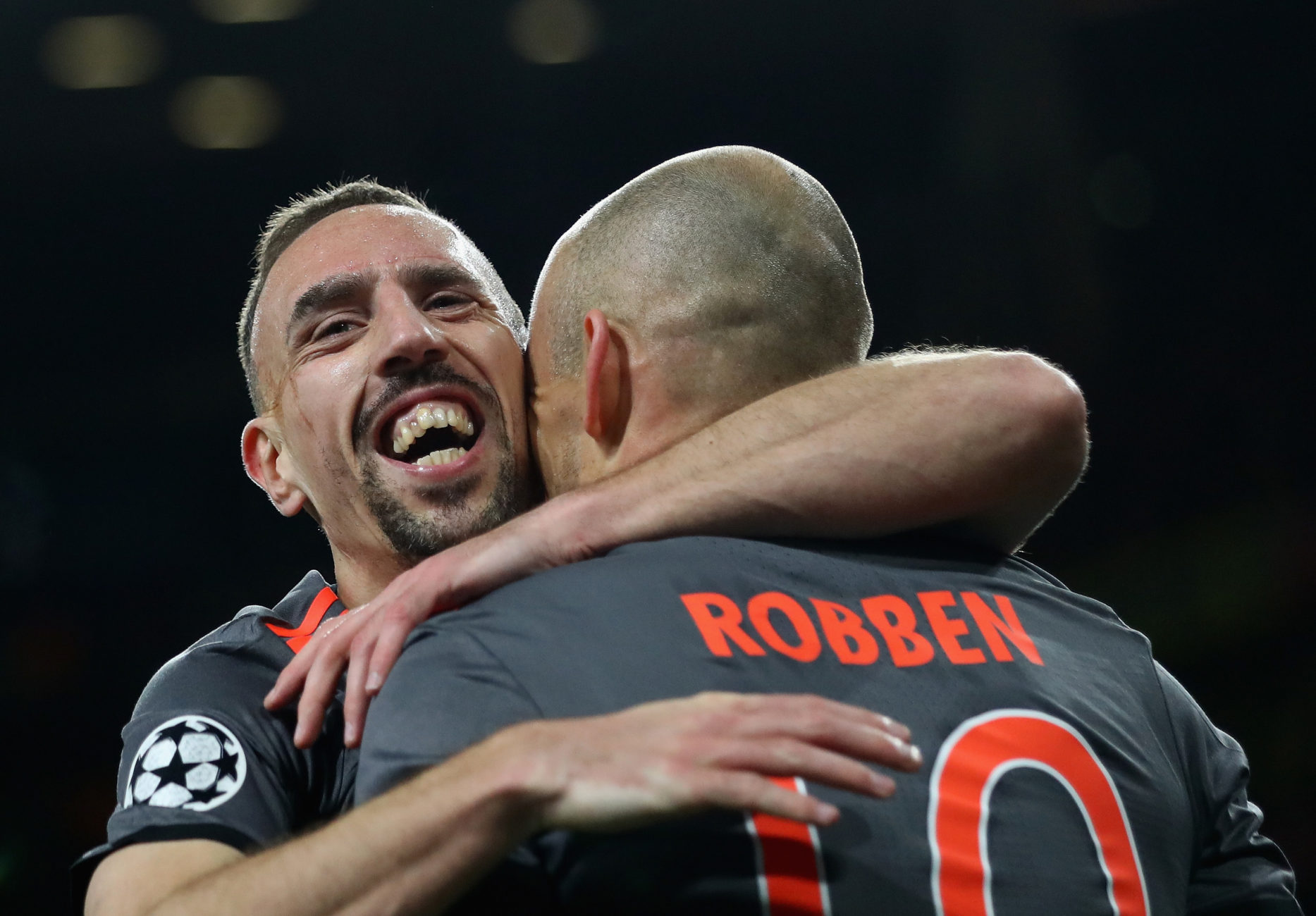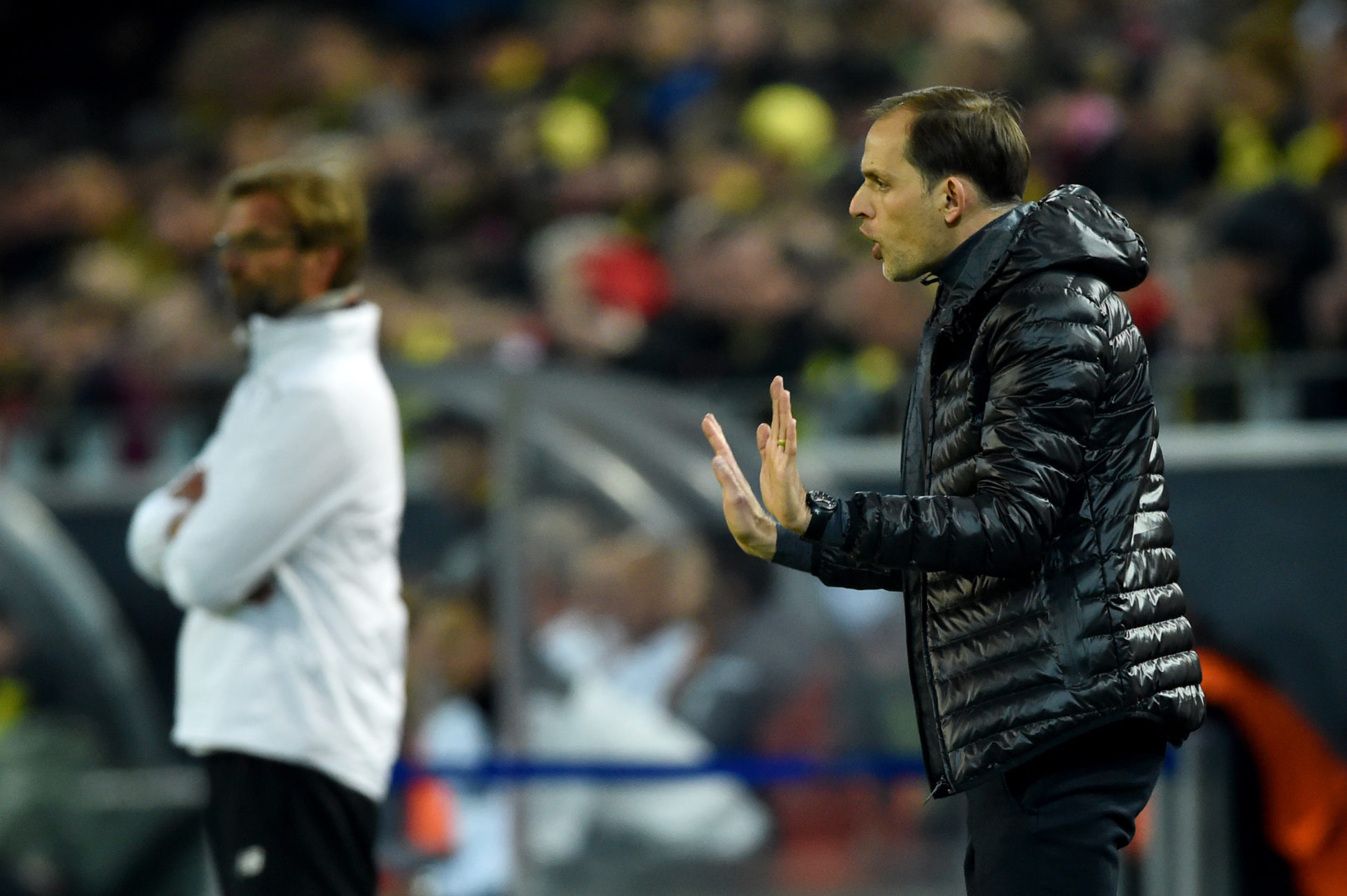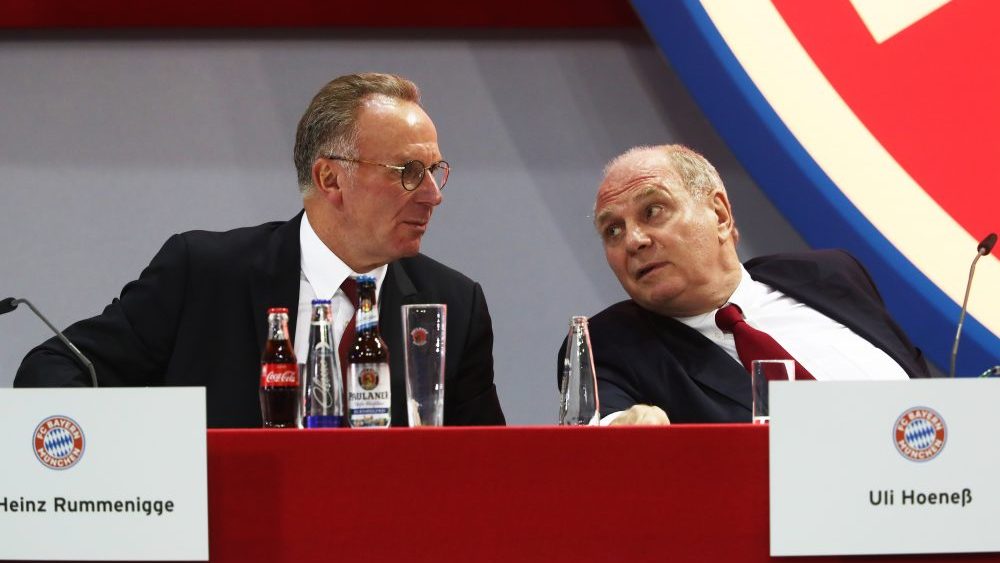Choking on pedigree?
The sleeping giant has awoken and now threatens to put everything that can’t keep up in its shadow. After more than half a century of confused wastefulness, the Premier League – almost at the same time, collectively– has learned that importing quality isn’t a sin. Finally England has understood modern football.
For FC Bayern that represents an enormous danger. If in the past you could be sure that island mentality would reign on the British Isles, meaning competitors in European transfer battles were countable on one hand, now the best-case scenario is being one among many.
The times of guaranteed sunshine are drawing to a close in Munich, with the British shadow swallowing up Säbener Straße at a merciless rate. Without a monopoly on German talent, without the certainty of wastefulness elsewhere, proactive and progressive action is needed to defend one of the desired places in the sun and to not disappear into the shadow of European second class.
Yet exactly that kind of action is out of fashion at Bayern. In striving for the Bavarian feel-good oasis, one relies on the familiar. In Bayern’s obsession with pedigree, they threaten to be weighed down by precisely that.
Modern structures
A little more than eight years ago, a courageous decision for Munich relations was taken. Enchanted by the development of the national team, jolted awake by the 0-4 humiliation in Barcelona, the club signed in Louis van Gaal a manager who had no status in Germany and also stood stubbornly for a playing philosophy. In true club tradition, this experiment threatened to fail after some difficult months. Ultimately the desire for a radical upheaval didn’t come from within, but rather came solely from individual results. The fact that this time the club didn’t look to take the first available route back to familiar territory was not in no small part down to the duo of Philipp Lahm and his agent Roman Grill.
Five years later the club found itself at its peak. Almost more importantly: this peak hadn’t been achieved by accident, but through focused and sustainable work. With Heynckes and later Guardiola, the club brought in managers who fit new playing philosophies. Alongside them was Matthias Sammer, somebody always ready to point out the smallest weakness. The squad was built in a modern way, and thanks to a unique balance of talent and depth was at times perhaps even the best in Europe. As if the status-quo wasn’t already enough, Michael Reschke was brought in, a scout and squad planner of (inter)national recognition.
The wing dilemma
Unquestionably not everything came off in those days. On the flanks in attack Bayern still haven’t been able to find equivalent replacements for Ribéry and Robben. In hindsight it’s easy as well to criticise the fact that the team didn’t go for Kevin de Bruyne, Leroy Sané or Sadio Mane, despite almost concluding negotiations. At the time it was generally agreed that the fees mentioned were all too high. After all, a Europe-wide explosion of transfer fees at the level we’ve seen still wasn’t to be entirely expected two years ago. And yet still a missed opportunity, if for understandable reasons.

(Image: Clive Mason/Getty Images)
Advantage wasted
Bayern Munich’s current squad is weaker than it was three or four years ago. Alongside a few unfortunate decisions, which happen everywhere, this also has to do with the aforementioned awakening in England. In today’s transfer market the club would be happy if they could get even one gem out of three like Thiago, Götze and Lewandowski. Now the top of the food chain isn’t just to be shared with colleagues from Barcelona and Madrid. The oligopoly, thanks to the English big six, PSG and also (to a lesser extent) the gradual re-strengthening of Italy, has become a real contest.
It’s all the more important that the club acquires and implements new expertise at all levels. In squad planning this had already been achieved with Reschke, who was aware of the new challenges and increasingly wanted to focus on transfers like that of Kimmich in order to reduce expensive big-money signings to the necessary amount. Reschke brought with him a huge network. Whether Hasan Salihamidzic can continue this course or even stamp his own mark remains to be seen. A Philipp Lahm, probably the most suitable candidate with pedigree in recent decades, would have been the safe choice for guiding that development.
The club also made huge progress in the youth department. The fact that nothing came from the academy for years after Badstuber and Müller was no coincidence. Here the club modernised. To this moment, suitable staff for youth work are signed up, and this positive personnel politics will pay off soon too. All the more fatal that this important investment in the future was given a leader like Hermann Gerland, who meanwhile represents pointless pedigree like no other in the club and operates in many youth department decisions as a conservative brake pedal. The actually successful separation of training and professional business is hindered by that at the very least.
The search for guaranteed perfection
Probably the most obvious symptom of the ailing Bayern, threatening to miss the boat, is what’s happening on the pitch. From an almost perfectly attuned team that was respected and often feared in Europe, to pure chaos in less than two years. The machine was taken apart, the individual components now having to fulfil the same roles without connections to one another. In short, Bayern are, tactically and technically, stunted.
Doubts about the appointment of Ancelotti were justified, even if the extent of the failure (in performances, not results) was utterly unforeseeable. In that sense, it wasn’t so much the appointment that was the mistake as much as keeping him beyond last summer. The problems were already recognised internally, they just multiplied in August and September. Had people simply allowed themselves to be blinded by the eventually positive results the season before? Did people actually believe that a coach in the late autumn of his career would be influenced and encouraged by the appointment of Willy Sagnol as “watchdog”?
Whatever the reason was, it was a sign of the new old Bayern. The relentless demand for good, sustainably successful football and reliable work to stay at the top of Europe officially became a thing of the past. In a phase where English and French-Qatari breath can be felt on Bavarian necks, the decision was made in Munich to stop the sometimes-painful sprint and continue the race at a walking pace.
The continuing, frantic search for a new manager crystallises the problems. Internally people are still aware of the importance of this decision, ultimately though the era that began with Van Gaal is over for good and a new face has to be developed in order to not continue to stagnate in individualism and a playing philosophy based on an accident.
Since the club seem to be on the look-out for a manager with a tactical profile, they’ve also learned from a big mistake in recent times. There are tactically adept managers everywhere at a high level. And yet FC Bayern are restricting themselves in their search by looking for a jack of all trades. The new coach should have something about him tactically, and personally too – so far, so good. The additional criteria, meanwhile, though they may hark back to the club’s aspirations, are based on entirely false conclusions.
So the next coach should really be a German. But why? At first glance the desire is understandable. Guardiola and Ancelotti failed in Germany in their public image – interestingly for completely different reasons: Guardiola suffered from his commendable and deadly obsession to absolutely have to speak German at a German club. That led to a negative/sterile atmosphere arising in conversations with the media, because his knowledge of the language and his feeling for striking a balance in his speech weren’t developed enough. Ancelotti meanwhile saw no real need to learn the language, which doesn’t have to be a wrong decision by any means, but when he failed was used directly as more proof for his failing laissez-faire policy.
From these mistakes, people now draw the conclusion that the problem can only be rectified by avoiding any manager with a language barrier. The problem there wasn’t about the language barrier itself, but how they coped with it, or better said their personalities on the whole. The team or media being rubbed the wrong way by Thomas Tuchel is not less likely than it would be with Antonio Conte or Luis Enrique anyway. The knee-jerk return to FC Deutschland is comfortable, but it limits the club unnecessarily in their options.

(Image: Stuart Franklin/Bongarts/Getty Images)
Likewise there seems to be doubt internally regarding many candidates about their experience, their pedigree at big clubs. In itself this is indeed a certain problem; after all, tried and tested managers are either already at another big club or they failed their last test. In combination with the desire for tactical understanding (still compatible) and being German (tough exclusion criteria), Hoeneß and Rummenigge limit themselves to a pool of four to five more or less suitable candidates. However, one of them isn’t fully proven (Nagelsmann), one didn’t pass his first test (Tuchel), and another would only be available if he failed in the immediate future (Klopp). The only currently fitting solution would probably be Joachim Löw, if you just ignore his career as a club manager. It’s still open, however, as to whether he’ll even be available.
So the club, in its search for the next manager, has crafted itself a small circle of candidates whose availabilities are questionable and whose defects are so varying that the options seem to be dependent on one another. You can’t shake off the feeling that there’s no Plan A and Plan B here, but a lot of different paths and no clear decision criterium. Even within the search, the decision will be influenced by short-term developments like Hoffenheim’s Europa League results.
Looking at the Bayern Munich of 2017 shows a club that had to give up its international knowledge and structural advantages of past years and due to a reactionary reflection on internal strengths is now seriously in danger of even falling behind. It’s still not too late to revive the available structures and to continue the upheaval of the club both in terms of structure and substance. For that, a clear, modern line is required – not the use of old methods for new challenges. If Bayern, however, continue to see pedigree as an unimpeachable mark of quality, they will be weighed down by it in the race towards international first class status.





